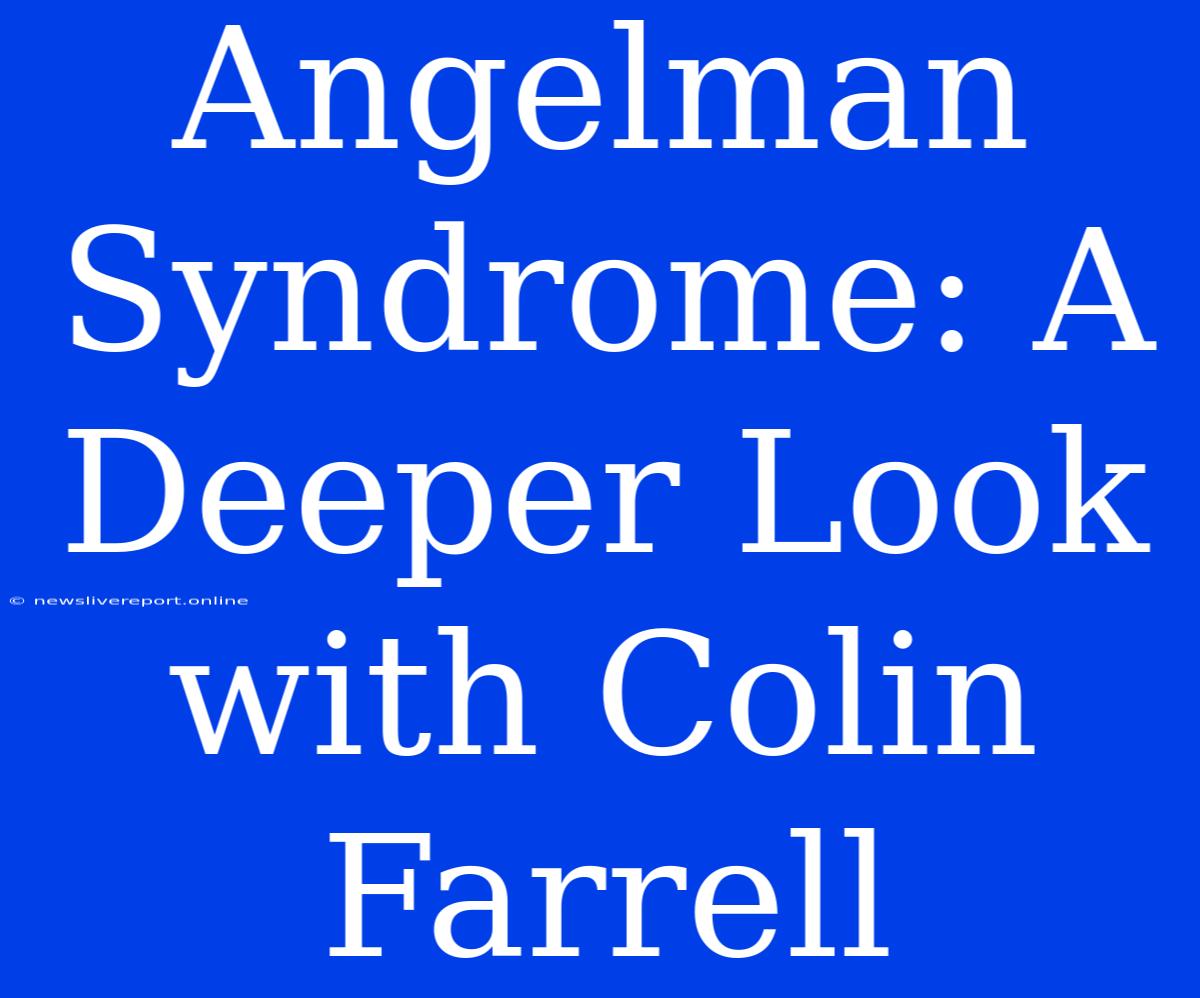Angelman Syndrome: A Deeper Look with Colin Farrell
Angelman Syndrome (AS) is a rare neuro-genetic disorder that affects approximately 1 in 15,000 people. While it's not as widely known as other conditions, it's gaining more attention thanks to the powerful advocacy of actor Colin Farrell, whose son James has AS. Farrell's dedication to raising awareness has helped bring this condition to the forefront, allowing families and individuals with AS to feel seen and supported.
Understanding Angelman Syndrome
AS is caused by a deletion or disruption of the UBE3A gene on chromosome 15. This gene plays a crucial role in the development of the nervous system, particularly in the brain. As a result, individuals with AS often experience:
- Developmental delays: This includes delays in speech, motor skills, and cognitive abilities.
- Intellectual disabilities: People with AS may have varying levels of intellectual disability, ranging from mild to severe.
- Characteristic facial features: These can include a wide mouth, a prominent chin, and a deep set eyes.
- Seizures: Seizures are common in AS and can range from mild to severe.
- Movement and balance issues: Individuals with AS may have difficulties with coordination, balance, and walking.
- Happy disposition: A defining characteristic of AS is a cheerful and happy disposition, often accompanied by excessive laughter and smiling.
Colin Farrell's Advocacy
Colin Farrell's journey as a father to James has been a powerful testament to the strength and resilience of families living with AS. His personal experience has fueled his commitment to raising awareness and advocating for better resources and treatments for individuals with the condition.
Farrell has actively participated in initiatives such as the Angelman Syndrome Foundation, working alongside researchers and families to find a cure. He has spoken publicly about his experiences, breaking down stigma and encouraging empathy. By sharing his story, Farrell has given a voice to countless families who are navigating the challenges of AS.
Beyond Awareness: Research and Treatment
While there is currently no cure for AS, research continues to advance. Ongoing efforts are focused on:
- Developing gene therapies: These therapies aim to replace or repair the faulty UBE3A gene, potentially leading to significant improvement in symptoms.
- Improving therapies for seizures and behavioral issues: Research is underway to find more effective and targeted treatments for common challenges faced by individuals with AS.
- Understanding the genetic and neurological basis of AS: Deeper research into the complexities of AS is essential for developing personalized treatments and therapies.
The Importance of Support
For families and individuals living with AS, support systems are crucial. This can include:
- Early intervention therapies: These therapies can help children with AS develop their skills and reach their full potential.
- Special education: Specialized educational programs can tailor learning to the specific needs of individuals with AS.
- Support groups: Connecting with other families facing similar challenges can provide a sense of community and shared understanding.
A Hopeful Future
With ongoing research, advocacy, and the support of individuals like Colin Farrell, a brighter future is possible for those living with Angelman Syndrome. By raising awareness, funding research, and promoting inclusion, we can work together to create a world where every individual with AS has the opportunity to thrive and live a fulfilling life.

